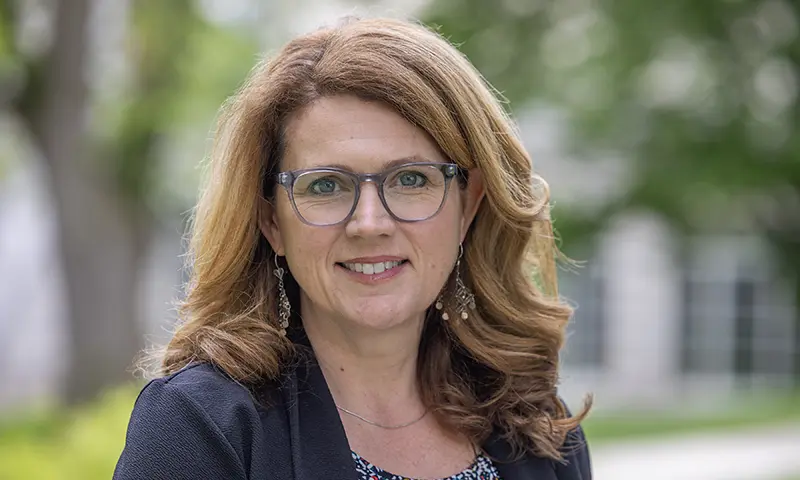
Stacey Philbrick Yadav

Stacey Philbrick YadavProfessor of International RelationsChair of International Relations
Joined faculty in 2007
Ph.D., University of Pennsylvania
M.A., University of Pennsylvania
B.A., Smith College
Contact Information
Scholarly Interest
I specialize in comparative politics of the Middle East and North Africa. My teaching focuses on the dynamic relationship between borders, belonging, and rights, and the way these link states, societies, and markets across the region. My research asks how civil actors pursue justice under conflict and post-conflict conditions, especially in Yemen.
Teaching Experience
- Harvard University (Fall 2008), Visiting Associate Professor of Government
- Mount Holyoke College (2006-07) Visiting Assistant Professor
- Politics, Visiting Assistant Professor International Relations
Research
My newest book, Yemen in the Shadow of Transition: Pursuing Justice Amid War, was published in January 2023. Drawing on ethnographic work, interviews, and focus groups, it details the role of civil actors in making a range of justice claims over the past three decades - as Yemen has experienced authoritarian rule, popular uprising, an internationally-brokered transitional period, and a protracted war. The book also contains a discussion of the role of Yemeni knowledge-production and peacebuilding research itself as a form of civil action, informed by my work with a number of Yemeni research organizations over the past several years.
Prior to this project, my research mainly concerned the dynamics of cross-ideological alliance formation. My first book, Islamists and the State: Legitimacy and Institutions in Yemen and Lebanon, detailed the institutional and discursive strategies adopted by Islamist and Leftist members of the major political blocs in those countries. Rather than assuming that Islamist parties are uniquely ideological, it shows that parties respond to the institutional "rules of the game" and are embedded in complex and shifting relationships with non-Islamist interlocutors, demonstrating that alliance dynamics are shaped by (but also shape) Islamist organizations.
As a researcher, I care as much about how we know as what we know, which is why I also think and write about methodology. I’ve published book chapters and essays on field research and, more recently, on the practical and ethical challenges of collaborative research in conflict-affected communities.
Courses Taught
- Introduction to Comparative Politics
- Human Rights and International Law
- Borders, Belonging, and Rights in the Middle East and North Africa
- State, Society, and Market in the Middle East and North Africa
- Political Violence and Non-Violence
- Post-Conflict Justice and Reconstruction
- Research Design and Ethics
- International Relations Capstone Seminar
Publications
“Consolidation through Crackdown: A Decade of Houthi Governance in North Yemen,” Policy Brief No. 157, Crown Center for Middle East Studies.
“The Houthis’ ‘Sovereign Solidarity’ with Palestine,” Middle East Report 309 (Winter), January 24, 2024.
“‘One Hand Does Not Clap’: Partisanship and the Dual Challenge of Women’s Inclusion in Yemen,” (with Rim Mugahed), Sana’a Center for Strategic Studies, December 2, 2021.
“Civil Action Under Uncivil Conditions in Yemen,”Institute for Social Justice and Conflict Resolution, May 2021.
“Effective Citizenship, Civil Action, and the Prospects for Post-Conflict Justice in Yemen.” International Journal of Middle East Studies 52, no. 4 (2020): 754-758.
“Fragmentation, Disintegration, and Reintegration in Yemen: Assessing the Islamist Field.” Middle Eastern Law and Governance 12, no. 1 (2020): 14-34.
“Ethnography is an Option: Learning to Learn in/through Practice.” In Political Science Research in the Middle East and North Africa: Methodological and Ethical Challenges. Edited by Janine A. Clark and Francesco Cavatorta. Oxford University Press (2020), 165-175.
“(Re)constituting Community: Takfir and Institutional Design in Tunisia and Yemen,” (with Ian M. Hartshorn). Terrorism and Political Violence 30, no 1 (2018).
“Antecedents of the Revolution: Intersectoral Networks and Post-Partisan Activism in Yemen,” Studies in Ethnicity and Nationalism 11, no 3 (2011): 550-563.
“Segmented Publics and Islamist Women in Yemen: Rethinking Space and Activism,” Journal of Middle East Women’s Studies 6, no. 2 (2010): 1-30.
“Understanding ‘What Islamists Want’: Public Debate and Contestation in Lebanon and Yemen,” Middle East Journal 64, no. 2 (2010): 199-213.
“Disappointments and New Directions: Women, Partisanship and the Regime in Yemen,” (with Janine Clark). HAWWA: Journal of Women in the Middle East and Islamic World 8 (2010): 55-95.
PROFESSIONAL AFFILIATIONS
- American Political Science Association (Chair, MENA Politics, 2021-2023)
- American Institute of Yemeni Studies (Treasurer, 2013-2023)
- Project on Middle East Political Science (Advisory Board member)
- Center for Applied Research in Partnership with the Orient (Advisory Board member)
- Middle East Studies Association
PERSONAL STATEMENT
One of the reasons that I have most enjoyed teaching at HWS since 2007 is that it reminds me of the accident of my own path. As a college sophomore, I took a class on an unfamiliar subject with a professor who had a passion for the material that I just couldn't ignore. Before I knew it, I was doing things I’d never imagined for myself – studying (very far) abroad, applying to graduate school, learning new languages, doing my own research...but it all began with that one class. I don't know if I'm able to offer the same kind of experience to my own students, but I feel fortunate that I’m able to try.
SERVICE PROJECTS
I regularly provide pro bono expert testimony in political asylum cases involving Yemeni applicants in the United States and Canada.
